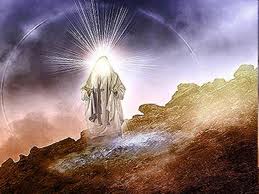
Exact Obedience
Christ did not stoop to enter into controversy with Satan. He might have brought against him the cruel work which his deceptions had wrought in heaven, causing the ruin of a vast number of its inhabitants. He might have pointed to the falsehoods told in Eden, that had led to Adam's sin and brought death upon the human race. He might have reminded Satan that it was his own work in tempting Israel to murmuring and rebellion, which had wearied the long-suffering patience of their leader, and in an unguarded moment had surprised him into the sin for which he had fallen under the power of death. But Christ referred all to His Father, saying, "The Lord rebuke thee." Jude 9. The Saviour entered into no dispute with His adversary, but He then and there began His work of breaking the power of the fallen foe, and bringing the dead to life. Here was an evidence that Satan could not controvert, of the supremacy of the Son of God. The resurrection was forever made certain. Satan was despoiled of his prey; the righteous dead would live again.
In consequence of sin Moses had come under the power of Satan. In his own merits he was death's lawful captive; but he was raised to immortal life, holding his title in the name of the Redeemer. Moses came forth from the tomb glorified, and ascended with his Deliverer to the City of God.
Never, till exemplified in the sacrifice of Christ, were the justice and the love of God more strikingly displayed than in His dealings with Moses. God shut Moses out of Canaan, to teach a lesson which should never be forgotten--that He requires exact obedience, and that men are to beware of taking to themselves the glory which is due to their Maker. He could not grant the prayer of Moses that he might share the inheritance of Israel, but He did not forget or forsake His servant. The God of heaven understood the suffering that Moses had endured; He had noted every act of faithful service through those long years of conflict and trial. On the top of Pisgah, God called Moses to an inheritance infinitely more glorious than the earthly Canaan. PP 478-479